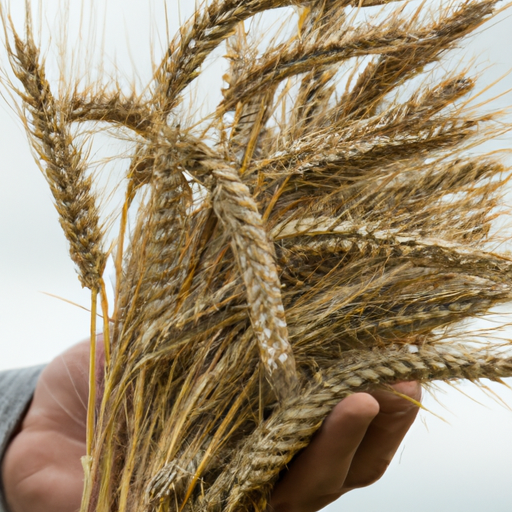Why Government Aid is Vital for Food Security
Hey there, folks! Today, I would like to talk about a crucial topic that affects us all: food security. You may have heard of the term before, but what does it actually mean? Simply put, food security is all about having access to safe, nutritious, and affordable food. Unfortunately, this is not a reality for everyone, which is why government aid is critical. In this blog post, I will discuss how government aid impacts food security, offer examples of government aid programs, and why we need to prioritize supporting these programs.
Okay folks, let’s talk about why government aid plays a huge role in our food security. You see, it’s not just about getting a free meal or handout. It’s about having access to healthy and nutritious food options that we might otherwise not be able to afford. And that’s where government aid programs come in. They help reduce the cost of food, increase availability, and even provide education on good nutrition practices.
Access to Nutritious Foods
One of the biggest reasons government aid is so important for food security is because it allows us to have access to more nutritious foods. For many low-income families, fresh fruits and vegetables are simply too expensive. With the help of programs like WIC and SNAP, families are able to purchase fresh produce and other healthy options that help to improve their overall health and wellbeing.
Cost and Availability of Food
Another major factor of food security is the cost and availability of food. When you’re struggling to put food on the table, it can be hard to find options that are both affordable and nutritious. That’s why programs like the School Lunch Program are so important. They provide children with healthy meal options they might not have access to otherwise. Plus, these programs help to ensure that food is available to those who need it most.
Nutrition Education
Finally, government aid programs provide important nutrition education that helps families make informed choices about the foods they eat. By teaching people about the importance of good nutrition and how to make healthy choices, we can help to combat obesity, diabetes, and other diseases that are linked to poor diets.

So, there you have it folks! Government aid is a crucial component of food security and has a major impact on our health and wellbeing. If you’d like to learn more about how to prepare for a food secure future, check out this article from Baked Occasions. It’s got some great tips and advice that can help you and your family stay fed and healthy.
Learn more about food security with Baked Occasions
Government Aid Programs for Food Security
Now that we understand how government aid can impact food security, let’s take a closer look at some of the programs available. These programs are designed to help individuals and families access nutritious food, regardless of their income level.
WIC (Women, Infants, and Children)
WIC provides assistance to pregnant and breastfeeding women, as well as children under the age of 5 who are at nutritional risk. Participants receive vouchers for items such as fresh fruits and vegetables, whole grain bread, and low-fat milk. In addition to providing food assistance, WIC also offers nutrition education and counseling to promote healthy eating habits.
Snap (Supplemental Nutrition Assistance Program)
Snap, formerly known as food stamps, provides financial assistance to low-income individuals and families to help them purchase food. Participants receive an EBT card, which works like a debit card to buy groceries at participating retailers. The amount of benefits received is based on income and household size, and can be used to purchase most foods, including fruits, vegetables, and whole grains.
School Lunch Program
The National School Lunch Program provides free or reduced-price lunches to children from low-income families. The program operates in public and nonprofit private schools, as well as residential childcare institutions. These lunches must meet certain nutrition standards, including serving a variety of fruits and vegetables and whole grains.
By utilizing these programs, individuals and families can have greater access to healthy, nutritious food, helping to improve their overall health and well-being. It’s important that we continue to support and fund these programs to ensure that everyone has access to the food they need to thrive.
Conclusion: Making a Difference Through Government Aid
So, what have we learned about the impact of government aid on food security? To sum it up – quite a lot. Government aid programs like WIC, SNAP, and the School Lunch Program have a significant effect on the accessibility, affordability, and nutrition education of individuals and families in need. By providing funds, vouchers, and other resources, government aid programs give access to nutritious foods and help alleviate the financial burden of purchasing groceries. Additionally, these programs offer vital nutrition education and serve as a safety net for people experiencing food insecurity.
But we can’t simply rely on government aid alone. Making a difference in food security requires collective action and individual responsibility. We must advocate for policies that support access to healthy foods and address the root causes of food insecurity. Furthermore, we can educate ourselves and others on nutritious eating habits, reduce food waste, and volunteer with local organizations to help distribute food to people in need.
With consistent work and cooperation, we can make a positive impact on food security and ensure that everyone has access to healthy, nourishing food. It’s time to take action and create a better future for ourselves and our communities. After all, as the saying goes – we are what we eat.

